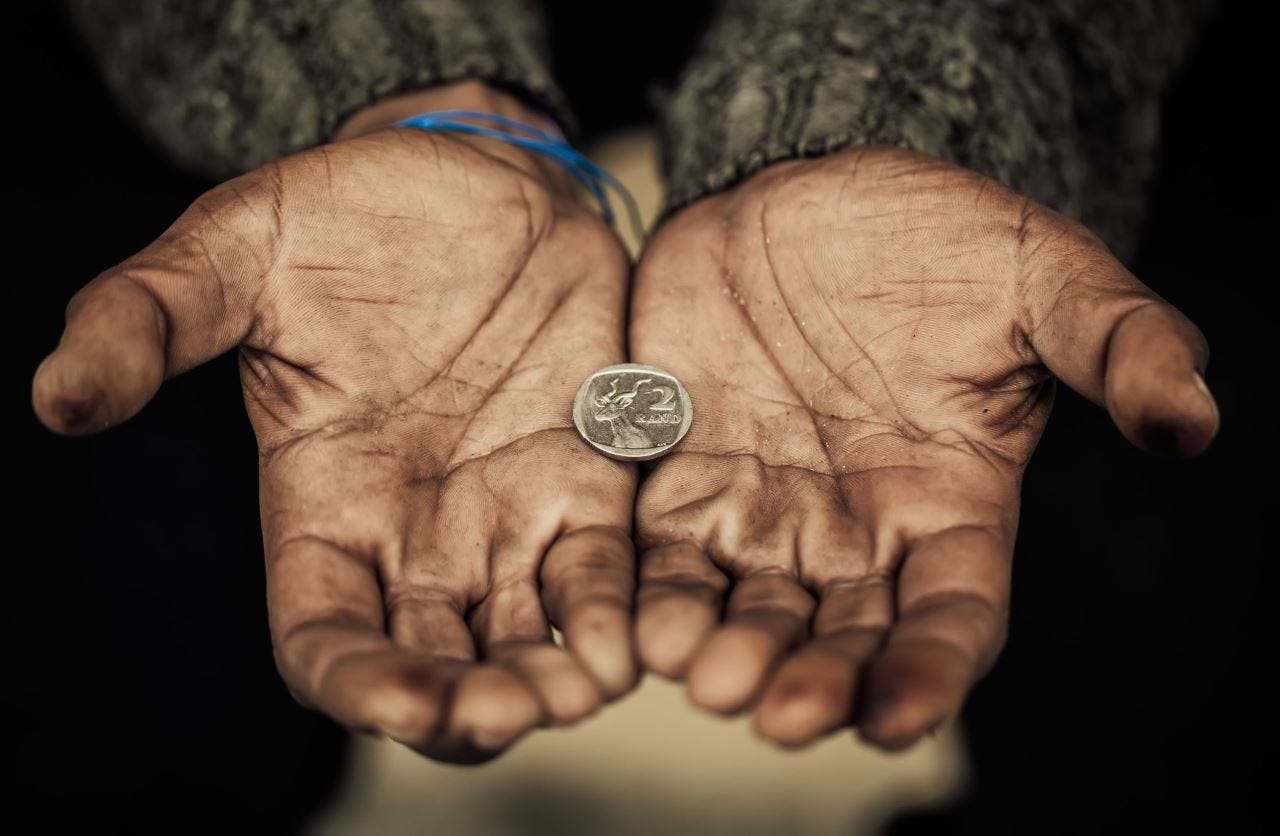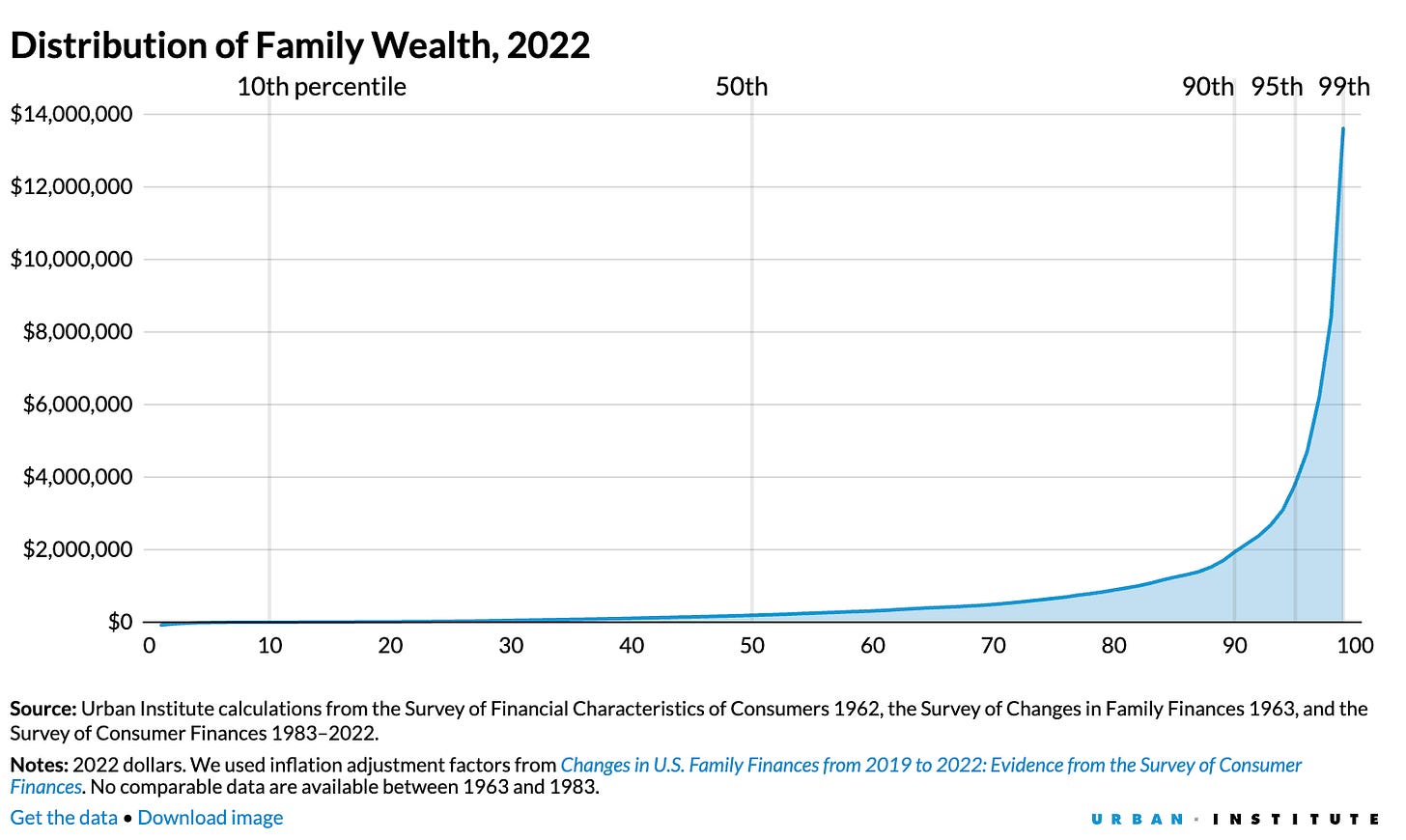But, in time and with the right change, they could fare better
Nov 13, 2025

Deuteronomy 15:11 offers a sobering observation for us all.
“For the poor shall never cease out of the land; therefore, I command thee, saying: ‘Thou shalt surely open thy hand unto thy poor and needy brother, in thy land,” the verse goes. And that idea is later repeated by New Testament authors Matthew, Mark and John, who separately quote Jesus echoing the theme.
Last night, as a group of us packed hundreds of bags of food for the needy in our generally well-off county, I was struck by how many poor folks – especially working poor folks — struggle in some of the most affluent areas of our country. Here, in Summit County, Colorado, where a single-family home just sold for $6.5 million, an interfaith group I’m involved with expects to distribute grocery gift cards to nearly 1,500 families for the coming holiday season, up from just under 1,200 last year.
And the group we worked with last night, Smart Bellies, gives food to needy children in our schools year-round. Last year, it distributed more than 47,000 weekend bags of food, up 39.2 percent from the prior year. It also provided nearly 130,000 snacks for classrooms in 13 schools in Summit and Lake counties, a 44 percent rise from the year before.
So many hungry and needy people.

Fewer than 31,000 people live in Summit County, high in the Rockies in the ski country. Most are well off, able to afford nice mountainside homes with stunning views of some of the most beautiful land in the country. And yet, there are so many folks who can barely get by here.
As our county commissioners reported recently, more than 700 households in the county rely on the federal government’s Supplemental Nutrition Assistance Program (SNAP), commonly called food stamps. Nearly one-third of some 1,400 individuals involved are children.
Perhaps the most unsettling thing is how invisible these folks are. It’s easy for many of us to go about our days — hiking, skiing, shopping, etc. – and not realize that many among us too often go hungry. While a handful of people beg on a few street corners at times, they are a minuscule fraction of those on the streets in Denver and other cities.
Our poor, typically, are hard-working people who don’t wear their relative poverty on their sleeves. As a colleague on the Summit Colorado Interfaith Council put it, they are our teachers, ski-lift operators, restaurant workers, caregivers and others. In a place where the median income tops $106,000 and the median cost of a home is $1.3 million, their modest pay levels don’t square the circle.
Nationwide, the situation may be similar. Nearly 42 million Americans — or more than 12 percent of our fellow-citizens — depend on SNAP. That suggests something is systemically awry. It suggests a need for change.
On one level, Scriptural admonitions about the poor, and the need to care for them, are simply truisms. They describe reality as it is, even in the most affluent country in the world. They suggest that the feeding programs we have are essential and always will be.

But, as we see widening gaps nationally between haves and have-nots, the verses offer no comfort. As we see billionaires multiplying their wealth – and attending Gatsby-themed parties in high places — while so many struggle to house and feed themselves, such counsels amount to painful slaps in the face. They seem inadequate when we see a government giving billions in tax breaks to the ultrarich and corporations.
Almost certainly, it will take political change, at levels from the counties on up to the White House, to help bring the poor up the ladder. Encouragingly, our local commissioners stepped in when SNAP benefits became a Republican bargaining chip in recent arguments in Washington. They allocated funds to help people who could have been denied aid.
But, as so many people are not feeling the booming economy the president continues to cite, as he points to our frothy stock markets as proof, needed changes could be on the not-too-distant horizon. The poor may always be with us, but if they and those who help them decide that we’ve all seen far too much neediness, even desperation, their lot could be easier in coming years.
There will always been a need for relief efforts by private groups such as Smart Bellies and the Summit Colorado Interfaith Council. Government can do only so much, and it may be spiritually healthy for groups such as those to lend a hand to those in need. And yet, does anyone doubt that government could do far more than it is?
